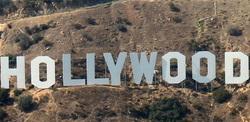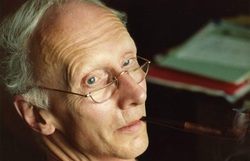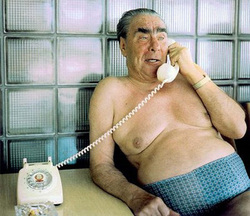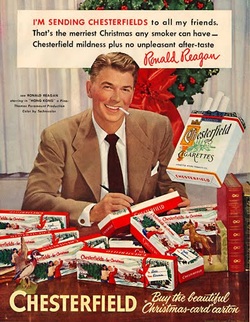
Eventually, I whisper, “Sir, I am not an African-American.”
He looks shocked. “You got a problem with me calling you a ni**er? You some kind of racist, boy?”
I have moved to America for three months to research my next book. The subject is celebrity activism, so I’ve rented an apartment in Los Angeles. Everything is satisfaction, bar just one thing: I can’t drive. In Los Angeles, not being able to drive is the equivalent of being a paraplegic who lives on the top of a mountain. I can’t go anywhere.
Britain won’t give me a driver’s license. I’ve tried five times and the buggers won’t say yes. The test is insanely hard and even harder for an academic who is distracted by bird flight. The failure would be easier to take if the examiners were nicer people. Invariably, they are all bitter and fleece-wearing, and always seem to have been served their divorce papers on the day I want to pass. So I’ve decided to learn in California. The experience nicely illustrates the enormous difference between our two cultures.
The difference boils down to this: in Britain you look in your mirror and signal before turning. In America, you signal and then look in your mirror before turning. The emphasis in the UK is upon caution. In the US, it’s all about speed. In some circumstances, you can pass a red light. You are encouraged to cross your arms when turning the wheel. The driving test in the UK takes 40 minutes; here it can take 10 minutes. O, and the only maneuver you have to carry out is reversing backwards in a straight line.
And yet, at face value, America is far more bureaucratic than Britain. The DMV website is incomprehensible and you have to show up in person and queue to get anything done. Technically, you have to be a citizen with a Social Security number to get a license.
But all these rules are flimflam disguising a pleasantly nonchalant attitude towards regulations. The government is so underfunded that they can’t possibly be enforced; and so desperate for cash that they try to make it as easy as possible to pass. Take the “permit” test – the American equivalent of the theory exam. It takes place in a room with no cameras and no controls over what paperwork you bring in (I saw someone clutching a fat “How to Pass Your Permit Test” book). You take as long as you want over 36 brain-dead questions (i.e., “Is it legal to snort coke and drive over the speed limit in a 30 MPH zone?”). Then you queue and the paper is marked in front of you by a gorgeous Latino girl with a red crayon. If you fail, you get two more goes. If you fail twice more you pay just $6 and start all over again.
A guy in a “USA – Fuck Yeah!” t-shirt told me that all of this was done to help illegal aliens to get a license. “The government figures that it’s a way of getting them into the tax system.” There might be some truth in that. For some reason, I sailed through despite being a foreigner without a visa. In fact, I think I may now be a citizen of the United States: I am certainly registered to vote in California. I won’t say which party I ticked, as I like to maintain an air of mystery.
But really, it’s all part of that free-market spirit. Europeans don’t care what happens, so long as it is done right. Americans are more interested in the final product. They say, “You want to do this, and I want to do that. How can we strike a deal?” I want to drive and the state wants my taxes, so we negotiate an understanding. They’ll let me pass and if I kill anyone, they’ll take away my license. Strip away several decades of liberal lawmaking and you still find a pioneer spirit of risk and enterprise. Just ask the Mexican guys who hang around outside Home Depot, selling their labor to anyone who wants a hand moving a bookcase or mowing their lawn. For all our dreams of control and order, the economy ticks anarchically on.
***
My driving instructor is a punk rocker. This morning he told me all about the gang members he has taught to drive: “They’re just happy to have something to do that isn’t killing other people.” In Los Angeles, even crime takes on a glamorous, celebrity-orientated edge. The Krips and the Doritos (whatever) hold parties that you can hear the other side of town. They wear chunky jewelry and write best-selling rap albums about the travails of keeping an eye on your “ho”. We cruise through a city that is not a city, but an archipelago of blocks – some violently opposed to each other. I’m in Beachwood, which is rich, white, and a bit gay. East, there’s poor Hollywood, South there’s tourist Hollywood, West there’s Beverly Hills, North there’s a huge mountain range. But none of these places interact and people get from point to point by island hopping – getting in their car and driving straight from the Hills to Bevs, without stopping or passing Go or giving $200 to a Dorito.
The architecture is democratic. You want to live in a chateau? Then build a chateau! I live in what looks like a converted 1920s cinema, wrapped in sexy green lines and curves. Opposite me is the Doge’s Palace from Venice, complete with barber-shop polls sticking out of the ground. Chaplin built a grey castle two doors down. At the end of my road is a working ranch. When Los Angeles decided it wanted to compete with New York, it built a downtown in the 1980s. It’s a miniature Wall Street that erupts from the middle of the sprawling suburbs. Being California, they build swimming pools on the top of the skyscrapers.
My landlady is a fabulous Hungarian. She makes liberal documentaries and her apartment (which I sublet) is filled with a strange mix of anticommunist literature, portraits of the Virgin Mary, and erotic photography. There is a map on her fridge showing all the yoga centers in the city. Most incongruously of all, I found that she has a fine collection of scripts for British sex farces. The lines are marked in highlighter pen, so I think they have been performed. It gives me great pleasure to imagine a Hungarian acting troop delivering Donald Sinden’s lines in heavy accents in front of an audience of UCLA hippies. Perhaps Carry On is big in Budapest. I know Norman Wisdom is huge in Albania.
***
This is the first of many such letters. I'll be taking in New York, Las Vegas, South Carolina, and the San Francisco commune in the next few weeks. Right now, I’m going to have a drink. I’m in America, but those who know me well know that I long for the Southland really. I shall visit it soon and sit outside by the dusty road drinking Buds with old friends. Los Angeles is too smart, too sassy for that. Being so close to Dixie makes my ears ring. So I shall stretch out on the yoga mat and dream of that land of cotton.






 RSS Feed
RSS Feed